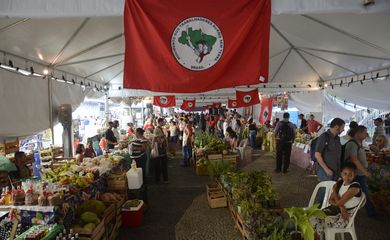Government says it is in a hurry to resume land reform

Brazil’s Minister for Agricultural Development and Family Farming Paulo Teixeira said he is in a hurry to resume the land reform in the country. “Our political time flies. Our political banner is land reform,” he said when speaking at the end of the meeting of the national coordination of the Landless Rural Workers’ Movement, or MST, on Saturday (Jan. 27).

The assembly brought together movement leaders throughout the week at the Florestan Fernandes National School in Guararema, in Greater São Paulo, which serves as a training center for the MST and was founded 40 years ago. At a press conference earlier in the day, movement representatives complained about the little progress made in land redistribution during President Lula’s first year in office.
The minister noted, however, that he is prepared to overcome the obstacles and lead a program that guarantees land for rural families. “Regarding land reform, we’re going to deal with all these pillars of Brazil’s historical difficulty. We are already prepared to set this process in motion,” he declared.
Land conflicts
Violence in rural areas was another issue Minister Teixeira promised to tackle. “We are mapping all field conflicts and we are going to denounce this militia taking shape in Brazil, which killed an indigenous woman in southern Bahia this week. We will not allow indigenous, quilombola, and land reform movements to suffer violence. And we will continue to fight against it and against those who commit it,” he pledged.
On Sunday (21), a Pataxó Hã-hã-hãe community was attacked by a group of men who tried to forcibly retake a farm occupied by indigenous people and considered a traditional territory. According to the Articulation of Indigenous Peoples of Brazil (Apib), the attack, which resulted in the death of a woman, was planned by a group self-styled Invasão Zero, “Zero Invasion.”



Dê sua opinião sobre a qualidade do conteúdo que você acessou.
Escolha sua manifestação em apenas um clique.
Você será direcionado(a) para o sistema Fala.BR, mas é com a EBC que estará dialogando. O Fala.BR é uma plataforma de comunicação da sociedade com a administração pública, por meio das Ouvidorias.
Sua opinião ajuda a EBC a melhorar os serviços e conteúdos ofertados ao cidadão. Por isso, não se esqueça de incluir na sua mensagem o link do conteúdo alvo de sua manifestação.
Clique aqui para mais informações sobre a Ouvidoria da EBC.









